Overview
Scarring Alopecia, also known as cicatricial alopecia, is a form of permanent hair loss that occurs when hair follicles are destroyed and replaced with scar tissue. This condition leads to irreversible hair loss and is often accompanied by inflammation, itching, or pain. Scarring Alopecia can affect men and women of all ages, and it may be caused by various factors, including autoimmune diseases, infections, or trauma to the scalp. Early diagnosis and treatment are crucial to prevent further hair loss and minimize scarring, often requiring a combination of medications and specialized treatments like hair restoration techniques.
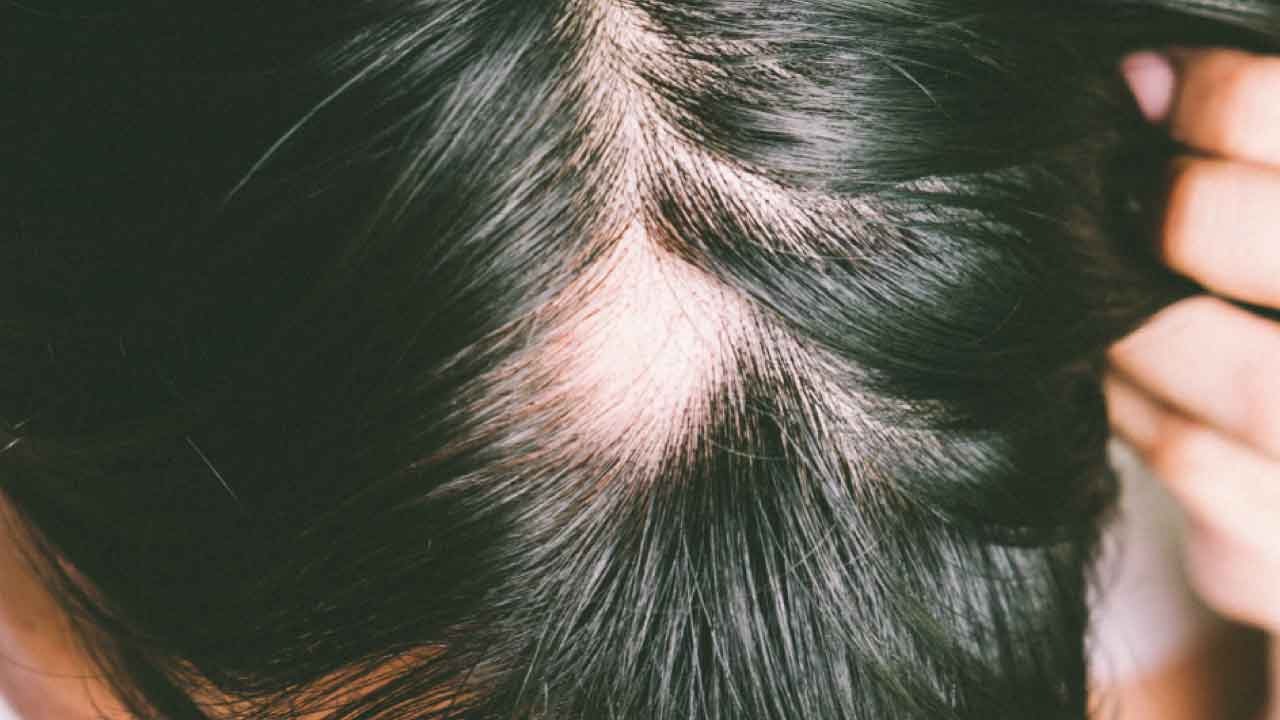
| Downtime | Avg Cost Of Treatment | No. Of Sessions Required | Success Rate | No. Of Patients Treated |
|---|---|---|---|---|
| Max 5 Days | Depends On Treatment | 6-8 Sessions | 95% | 70,000+ |
Educating & Empowering You
All You Need To Know About Scarring Alopecia
Autoimmune disorders occur when the immune system mistakenly attacks the body’s own cells. In the case of Scarring Alopecia, conditions like lupus or lichen planopilaris can lead to inflammation in hair follicles, damaging them. This damage disrupts the hair growth cycle, leading to permanent hair loss in the affected areas. Certain infections, such as bacterial or fungal, can result in Scarring Alopecia. For instance, a severe case of folliculitis or tinea capitis (ringworm of the scalp) can cause inflammation and scarring. The body's response to these infections may lead to permanent damage to hair follicles, making it difficult or impossible for hair to regrow. Genetic predisposition can play a significant role in the development of Scarring Alopecia. Some individuals may inherit a tendency toward autoimmune conditions or skin disorders that affect hair follicles. When combined with environmental factors, this genetic vulnerability can trigger inflammation and scarring, resulting in hair loss.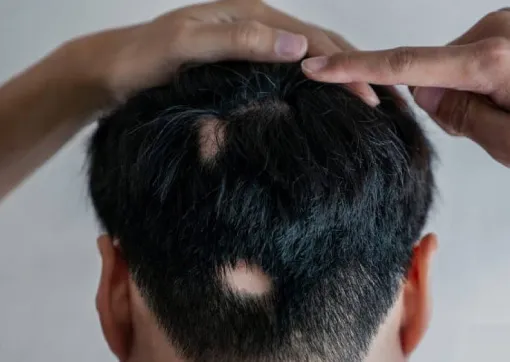
Autoimmune Disorders
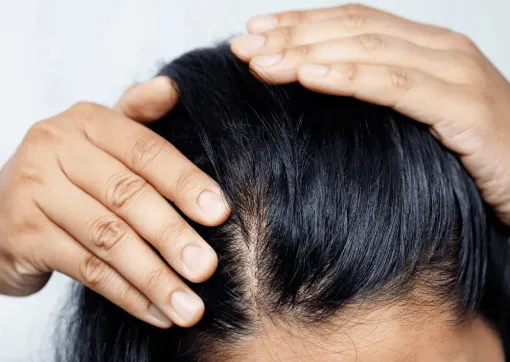
Infections
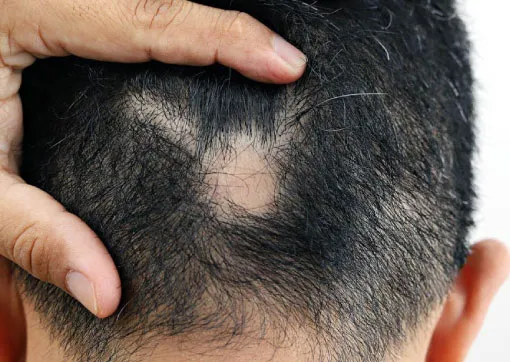
Genetics
Scarring alopecia is characterized by the presence of scar tissue on the scalp. This occurs when hair follicles are destroyed and replaced with fibrous tissue, leading to irreversible hair loss. The scars may be visible as white or pale patches on the scalp, and they may vary in size and shape. Identifying these scars is crucial for diagnosis and treatment planning. In scarring alopecia, hair loss occurs in patches where the hair follicles become damaged or destroyed. This type of hair loss can be permanent, leading to bald spots on the scalp. The affected areas may be smooth and shiny, indicating that hair follicles are no longer functional. This can cause emotional distress, affecting self-esteem and confidence. Patient with scarring alopecia often experience an itching or burning sensation in the affected areas. This discomfort can be a result of inflammation in the hair follicles or surrounding skin. It may vary in intensity and can lead to scratching, which can further damage the scalp and exacerbate the hair loss. Proper treatment can help reduce these uncomfortable sensations.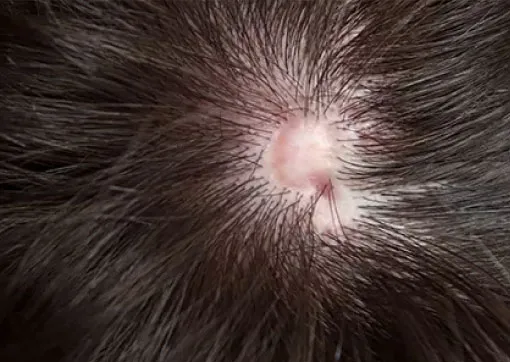
Scarring On The Scalp
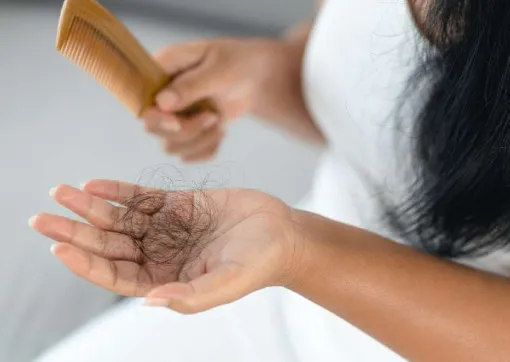
Hair Loss
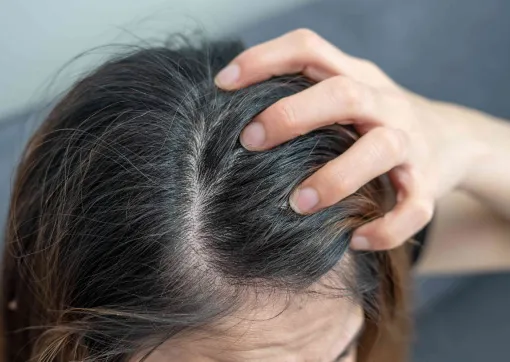
Itching or Burning Sensation
Intralesional steroid injections are a common treatment for scarring alopecia. This procedure involves injecting corticosteroids directly into the affected areas of the scalp to reduce inflammation and promote hair regrowth. The steroids help to suppress the immune response that is causing hair loss, leading to improved hair density over time. Regular sessions may be necessary for optimal results. Rigenera Activa treatment involves the extraction of small tissue samples from the patient’s scalp, which are then processed to obtain regenerative cells. These cells are injected into the affected areas, promoting healing and hair regrowth in scarring alopecia. This innovative technique not only revitalizes hair follicles but also helps in repairing the damaged scalp tissue, offering a dual benefit for hair restoration. In cases where significant hair loss has occurred, hair transplant surgery can be an effective treatment. This involves removing hair follicles from a donor area and implanting them into the balding or thinning areas. It provides a permanent solution, restoring natural hair growth in previously affected regions. Candidates must have sufficient healthy hair in donor areas for successful transplantation.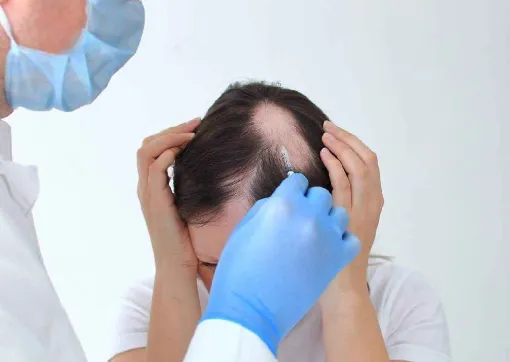
Intralesional Steroid Injections
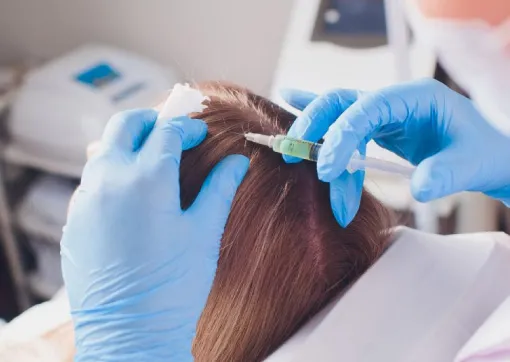
Rigenera Activa Treatment
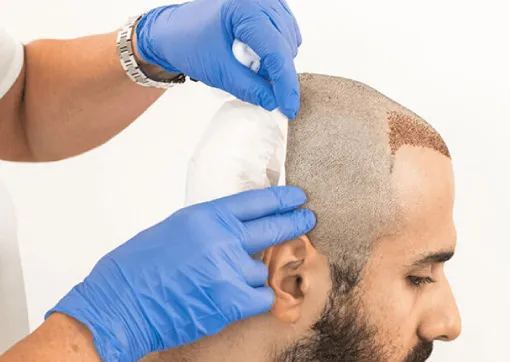
Hair Transplant Surgery
Low-Level Laser Therapy (LLLT) utilizes low-intensity lasers to stimulate hair follicles and promote healing. This non-invasive procedure improves blood circulation in the scalp, delivering vital nutrients to hair roots. LLLT is known for its ability to reduce inflammation and encourage hair regrowth, making it an effective option for those suffering from Scarring Alopecia. Erbium laser resurfacing targets the damaged skin on the scalp by removing the outer layers. This treatment helps to improve the appearance of scars and promotes collagen production, aiding in the regeneration of healthy skin. By enhancing the scalp's texture, this procedure can create a more favorable environment for hair growth in areas affected by Scarring Alopecia. Fractional CO2 laser therapy is a more aggressive treatment that targets deeper layers of skin. This method promotes the regeneration of skin cells while stimulating collagen production. By addressing the scar tissue associated with Scarring Alopecia, it can improve skin texture and appearance. Patients often see enhanced healing and potential for hair regrowth in treated areas.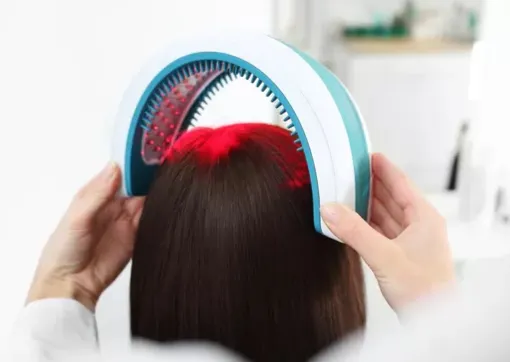
Low-Level Laser Therapy (LLLT)
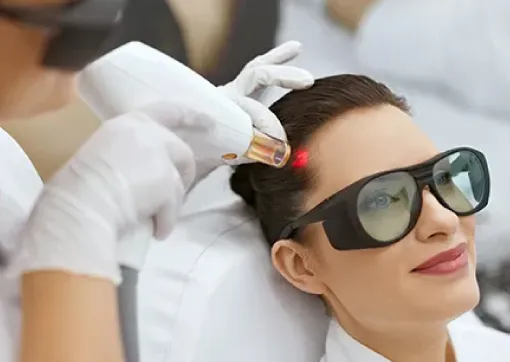
Erbium Laser Resurfacing
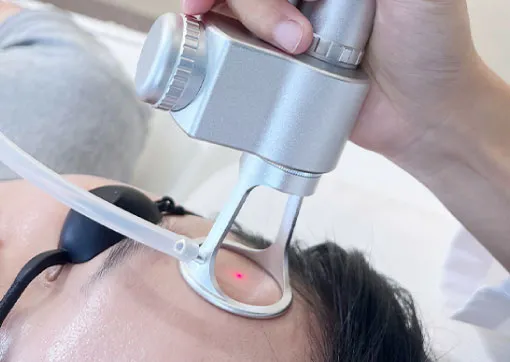
Fractional CO2 Laser Therapy
Low-Level Laser Therapy (LLLT) utilizes low-intensity lasers to stimulate hair follicles and promote healing. This non-invasive procedure improves blood circulation in the scalp, delivering vital nutrients to hair roots. LLLT is known for its ability to reduce inflammation and encourage hair regrowth, making it an effective option for those suffering from Scarring Alopecia. At HairMD Clinic, we prioritize your needs through thorough consultations. Our doctors take the time to understand your unique condition, including the severity of Scarring Alopecia, medical history, and lifestyle factors. This personalized approach allows us to develop a tailored treatment plan that aligns with your goals, ensuring you receive the most effective and relevant care for your hair loss. Patient satisfaction is a core value at HairMD Clinic. We strive to create a welcoming and supportive environment where patients feel valued and heard. Our team is committed to addressing your concerns, answering questions, and providing ongoing support throughout your treatment journey. Your comfort and satisfaction with the outcomes of Scarring Alopecia treatment are our top priorities.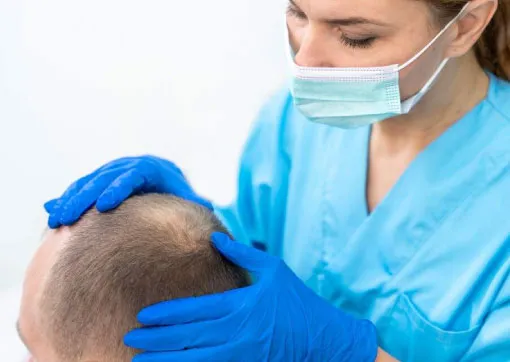
Expert Team of Specialists
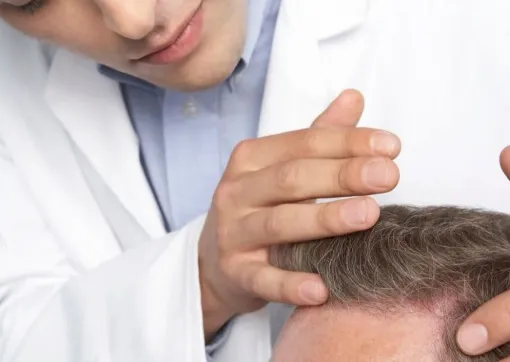
Comprehensive Consultations
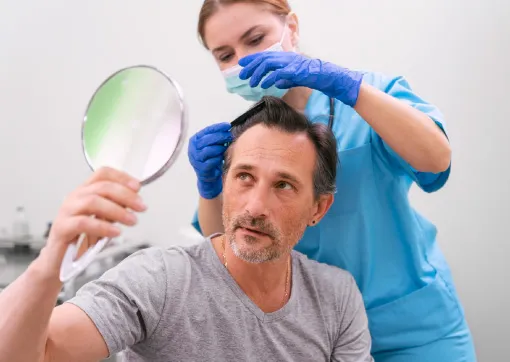
Patient Satisfaction
HairMD India
HERE’S WHY WE’RE PUNE’S TOP CHOICE FOR scarring alopecia TREATMENTS!
At HairMD Clinic, we are the best choice for treating Scarring Alopecia in Pune! Our clinic specializes in providing effective solutions tailored to the unique needs of each patient dealing with this condition. With our skilled professionals and cutting-edge technology, we ensure optimal results for every individual. Our personalized approach to Scarring Alopecia treatment, combined with a welcoming environment, makes each visit comfortable and reassuring. By staying updated with the latest advancements in hair restoration, HairMD Clinic delivers innovative and effective treatments. Regain your confidence and enjoy a fuller head of hair with us today!
We
Transformed lives of over 1,47,000 patients
US-FDA Approved Hair Treatments & Technology
Experience over 34+ years. Since 1989
Advanced FUE hair Transplant with 2157+ Cases
Pricing & treatment transparency & Ethical
Others
Many clinics are led by non-MD hair doctors
Success rates can vary widely due to many factors
Lack of expertise leads to poor patient satisfaction
Many clinics, of any scale, lacks US-FDA Technologies
Poorly designed medical protocols & therapies
Lack of transparency & patient support
Limited or low expertise in FUE hair transplant
22 Doctors One Goal
Making 200 Patients Confident Everyday!
Meet The Best Hair Doctors In Pune
Founded in 1989 by Dr. Dhananjay Chavan in Karad, Maharashtra, Clear Skin and HairMD has been at the forefront of dermatological care in India. Recognizing that effective treatments for skin and hair issues like scarring alopecia were often seen as luxuries, Dr. Chavan aimed to make them accessible and affordable for everyone.
In 2012, we opened our first clinic in Pune, expanding our mission to provide effective and safe treatments across the region. Our team has grown from an original five members to over 100 dedicated professionals, all committed to delivering high-quality care. We focus on providing scientifically backed treatments for scarring alopecia, utilizing the latest advancements in dermatology.
Our specialists are trained to diagnose and treat scarring alopecia with compassion and expertise. We prioritize patient education, ensuring that you understand your condition and the available treatment options. From advanced medical therapies to innovative solutions, we are here to help you restore not only your hair but also your confidence.
If you’re dealing with scarring alopecia, don’t navigate this journey alone. Contact Clear Skin and HairMD today and take the first step towards healthier hair and renewed confidence.
We Have Here To Answer Every Possible Doubt You Have On Scarring Alopecia.
If you don’t find answer to your query, then please write down to is. We are always there to help you.
What is scarring alopecia?
Scarring alopecia, also known as cicatricial alopecia, is a type of hair loss in which hair follicles are permanently replaced by scar tissue, preventing hair regrowth.
What causes scarring alopecia?
Scarring alopecia can result from various factors, including inflammatory skin conditions, autoimmune diseases, trauma, burns, infections, and genetic predisposition.
How can I recognize scarring alopecia?
Scarring alopecia may present as hair loss with associated symptoms like redness, scaling, itching, or pain in the affected area. Over time, scar tissue may become visible.
What are the Scarring Alopecia Treatments?
The Scarring Alopecia treatment may include medications to control inflammation and halt the progression of the condition. In some cases, surgical interventions such as hair transplant surgery may be considered.
Are there specialist clinics or doctors for people experiencing Scarring Alopecia?
Yes, there is a best hair doctor in Pune at HairMD Clinic for people experiencing Scarring Alopecia.
Is scarring alopecia reversible?
Unfortunately, once hair follicles are destroyed and replaced by scar tissue, hair cannot regrow. Early diagnosis and treatment are crucial to preventing further hair loss.
Can scarring alopecia spread?
Yes, scarring alopecia can spread to other areas of the scalp if left untreated, leading to more extensive and permanent hair loss.
Patient Guides
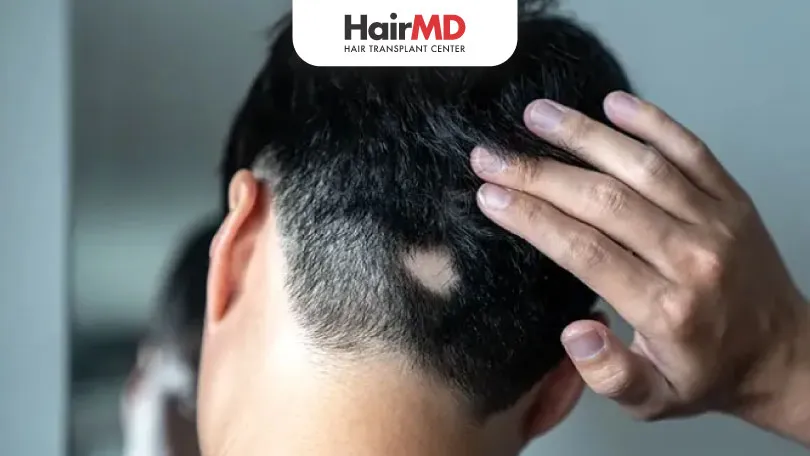
How to Treat Alopecia Areata at Home: Natural Solutions for Hair Growth
Explore home remedies for alopecia areata to promote hair regrowth and boost confidence from home.
Redensyl vs. Minoxidil: Which is the Better For Hair Growth?
Discover the differences between Redensyl and Minoxidil for hair growth. Learn about their effectiveness, side effects, and which treatment might be better for you.
Biotin-Rich Foods for Natural Hair Growth
Know the best foods rich in biotin to help your hair to grow naturally stronger and healthier by experts from HairMD, Pune
How to use Minoxidil and Dermaroller together?
Boost hair growth with Minoxidil & Dermaroller! Learn the right technique, benefits, and mistakes to avoid for thicker, healthier hair.
Powerful Home Remedies for Itchy Scalp
Soothe an itchy scalp naturally with home remedies like aloe vera, coconut oil, and apple cider vinegar. Discover simple solutions for scalp relief.
How to Reverse Grey Hair Naturally?
Grey hair can be reversed naturally with proper nutrition, stress management, and the right hair care routine. Discover effective ways to slow down greying.
Omega-3 for Hair Growth: Benefits and Side Effects
Omega-3 nourishes hair, promotes growth, and reduces hair fall. Know its benefits, side effects, and best sources for healthy, stronger hair.







